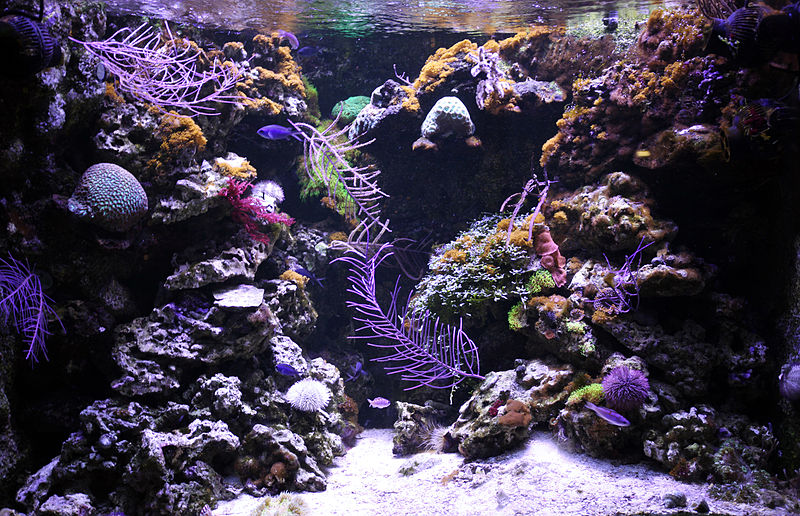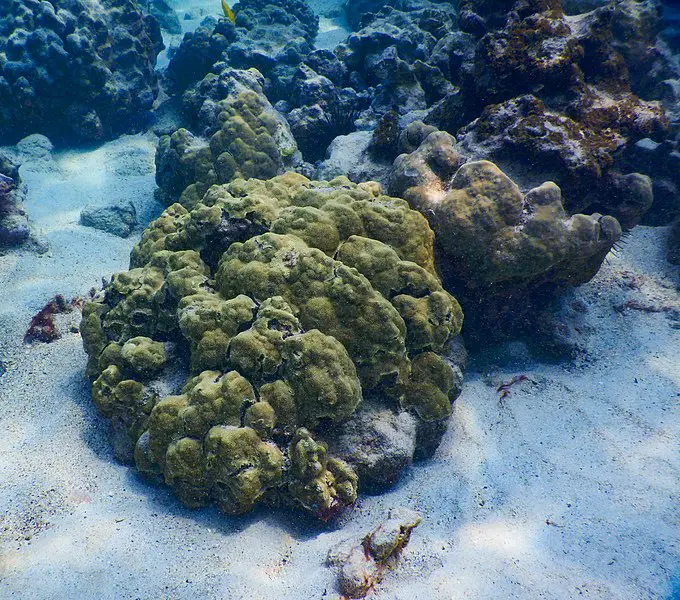Introduction
Corals have very varied lifespans because there are a great many different kinds, but some people think that some of the longest living corals may be able to survive for around 5,000 years or more. This places them as one of the most ancient animals on the planet, although not all of them will survive for this long.
It’s hard to estimate how long a coral lives just by observing it, but in recent years, studies have begun to suggest that corals can actually survive for thousands of years, far outstripping earlier estimates of 70 years or so. This information comes from studying the age of carbon that the corals have acquired and stored in their tissues.
How Long Do Corals Live In An Aquarium?
How long a coral will survive in an aquarium depends heavily on the coral and the aquarium – because some corals will live for a lot longer than others, and if the conditions are wrong, no coral will survive for any notable period of time.
In general, most kinds of corals in an aquarium will live for ten years or more if you look after them well enough.
Some people say that corals don’t age and that if you provide the right conditions, they will live forever, but this has not yet been proven. It seems unlikely that a coral will keep existing indefinitely, with no sign of aging, even if the conditions are good.
However, it does seem likely that if they can live for almost 5,000 years in the wild, they should be able to survive for a long time in a suitable tank, too. This is particularly true because they will be protected from some of the stressors that wild corals face.
It is hard to know how long a coral will survive in an aquarium, because the coral will propagate itself and spread, making it a challenge to measure its age. A newly propagated coral could keep living even if the parent coral dies, and it will be genetically identical – essentially, the same organism as the parent was.
In short, nobody really knows how long a coral can live in an aquarium, but it is likely that it will survive for a very long time if you give it the right environment. It may outlive you if you take good care of it – and possibly anyone you pass your aquarium on to afterward.
How Long Do Sea Corals Live?
The debate about how long corals can live is likely to continue for some time, but it seems likely that they can live for at least several hundred years, even if the estimates of 5,000 are too generous.
However, according to some scientists, a Leiopathes coral has been confirmed to have reached 4,265 years old. They got this estimate by measuring the carbon in the food that corals were eating to give an idea of how long ago the isotope in question was formed.
This allowed them to date the tissue, but the method has been called into doubt by other researchers, who believe the findings are biased at best and inaccurate at worst.
If the findings are correct, corals may be the longest living organism that is found in the sea, although not the longest on the planet. Some trees are thought to live for longer, such as the bristlecone pine, and until further research has been done, it’s difficult to know whether the coral truly rivals this tree or not.
These challenges are not made easier by the difficulty presented by measuring one individual coral versus an entire coral reef. It is certain that some coral reefs are thousands of years old when measured as a collective structure, but many people still believe that the individual corals only live for a few hundred years – or less – each.
The individual polyps of a coral might only last for a few years, and the coral will need to reproduce or divide itself to keep growing. Whether this means it is the same animal or a new one is very difficult to determine, and the question therefore remains unanswered.
Overall, however, coral reefs can survive almost indefinitely it seems, and many are estimated to be over 5,000 years old, with some approaching 10,000 years. There’s no doubt that corals are extremely resilient and have amazing endurance abilities – but until we are able to better measure their lifespans, it’s really not possible to determine how long they live.
Why Do Corals Live So Long?
Many creatures that grow slowly live for a long time. Fast growth is almost always associated with a shortened lifespan. Corals, which grow only a few inches per year at the most, are therefore good candidates for living for a long time.
The corals also grow in sheltered, protected, warm environments that rarely experience sharp changes in temperature or conditions. This minimizes their stress, and may help them to survive for longer. The more stable an environment is, the longer the creatures that live in it tend to survive.
Growing in relatively deep waters also seems to be conducive to long life among sea creatures, and many sea sponges that grow in similar conditions to corals also have excellent life expectancies.
Furthermore, the way that the coral reproduces to create young sections in its reef may help to promote health and strength. The coral is not just one unit that ages, the way most animals are – it is made up of many, and these are constantly renewing and refreshing themselves.
Additionally, it is an evolutionary advantage for the coral to regrow when injured. Most animals have some regenerative abilities, but for those that depend upon slow, ongoing growth and do not have many predators, regrowth is the best strategy for survival.
Conclusion
It isn’t known exactly how long corals live. Various studies have attempted to measure this with different methods, but it is made more complicated by the propagation strategy. However, it is clear that corals can live for a long time, and may even be able to survive for hundreds or thousands of years in the natural world.


